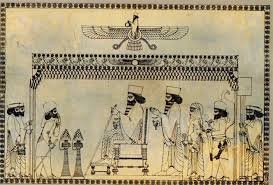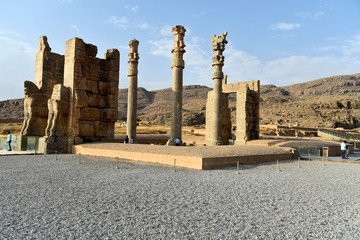Iranian dynasty
Achaemenian Dynasty, (559–330 BCE), ancient Iranian dynasty whose kings founded and ruled the Achaemenian Empire. Achaemenes (Persian Hakhamanish), the Achaemenians’ eponymous ancestor, is presumed to have lived early

in the 7th century BCE, but little is known of his life. From his son Teispes two lines of kings descended. The kings of the older line were Cyrus I, Cambyses I, Cyrus II (the Great), and Cambyses II. After the death of Cambyses II (522 BCE) the junior line came to the throne with Darius I. The dynasty became extinct with the death of Darius III, following his defeat (330 BCE) by Alexander the Great.
Probably the greatest of the Achaemenian rulers were Cyrus II (reigned 559–c. 529 BCE), who actually established the empire and from whose reign it is dated; Darius I (522–486), who excelled as an administrator and secured the borders from external threats; and Xerxes I (486–465), who completed many of the buildings begun by Darius. During the time of Darius I and Xerxes I, the empire extended as far west as Macedonia and Libya and as far east as the Hyphasis (Beās) River; it stretched to the Caucasus Mountains and the Aral Sea in the north and to the Persian Gulf and the Arabian Desert in the south.
The Achaemenian rule of conquered peoples was generally liberal; the empire itself was divided into provinces (satrapies), each administered by a satrap who underwent frequent inspections by officials reporting directly to the king.
Royal inscriptions were usually trilingual, in Old Persian, Elamite, and Akkadian; Aramaic, however, was employed for imperial administration and diplomatic correspondence.
Building activity was extensive during the height of the empire, and of the several Achaemenian capitals, the ruins at Pasargadae and at Persepolis are probably the most outstanding. Achaemenian sculptured reliefs and a great number of smaller art objects present a remarkably unified style for the period. Metalwork, especially in gold, was highly developed, and a variety of carefully executed examples survive.











